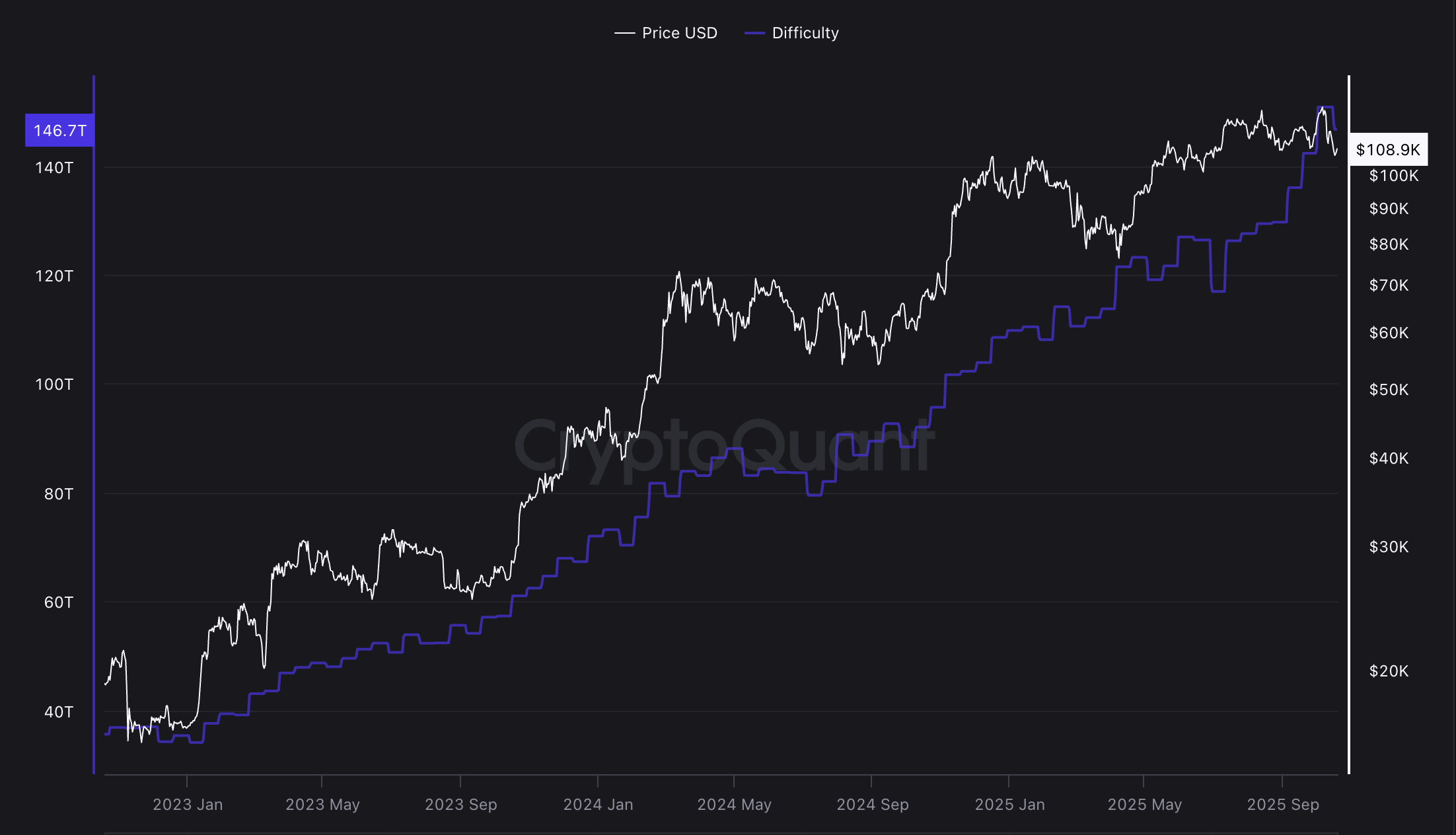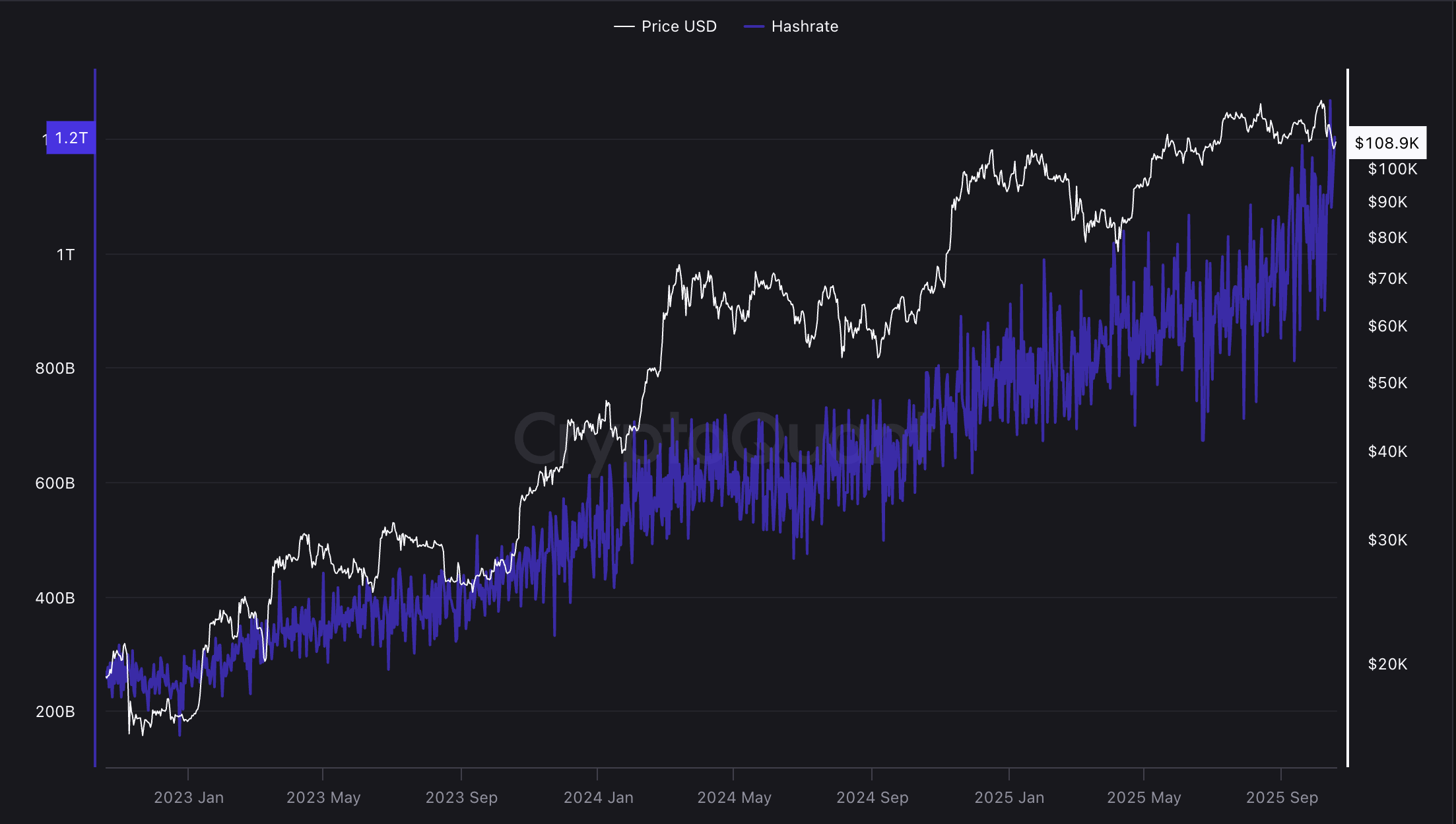
Bitcoin Mining Experiences Easing Amid Rising Hashrate
The Bitcoin network hashrate reaches a new peak as mining difficulty reduces, creating challenges for miners.
The Bitcoin (BTC) mining difficulty saw a decrease to 146.7 trillion on Friday, while the hashrate of the network rose to an unprecedented level, surpassing 1.2 trillion hashes per second.
Bitcoin mining difficulty has dropped by roughly 2.7% from the previous peak of over 150.8 trillion during the last adjustment period, as per data from CoinWarz.
 Bitcoin mining difficulty drops. Source: CryptoQuant
Bitcoin mining difficulty drops. Source: CryptoQuant
However, the network hashrate remains high, even after a slight reduction from the previous all-time high, according to data from CryptoQuant.
“The next difficulty adjustment is projected for October 29, 2025, at 08:14:49 AM UTC, which is expected to raise the Bitcoin mining difficulty from 146.72 T to 156.92 T, occurring over 1,474 blocks.”
The rising hashrate indicates that miners will need to deploy more computational power to add new blocks to the Bitcoin ledger, increasing pressure on miners, who are also facing challenges from trade policies, decreased block rewards, and competition.
 Bitcoin network hashrate at its peak. Source: CryptoQuant
Bitcoin network hashrate at its peak. Source: CryptoQuant
Mining companies are exploring alternative revenue streams to make up for losses from digital currency mining, including venturing into AI data centers and other forms of high-performance computing.
Core Scientific, Hut 8, and IREN have diverted their efforts towards AI data centers in 2024 to enhance profits and lessen their dependence on cryptocurrency mining revenue.
The shift to AI data centers has sparked competition between miners and the AI infrastructure providers, both of which are vying for access to affordable energy sources necessary for their operations.
Despite diversifying into new revenue avenues, the mining sector continues to face regulatory hurdles and emerging supply chain issues, partially due to U.S. President Donald Trump’s trade tariffs.
Tariffs increase the cost of acquiring mining hardware in regions affected by tariffs, putting those miners at a competitive disadvantage compared to others who can obtain rigs without these added costs. If tensions between the U.S. and China escalate, export controls on processors and other electronics may complicate hardware availability further.
Related: 7 reasons why Bitcoin mining is a terrible business idea


